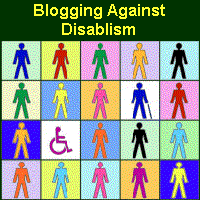Recently, Jezebel published an article titled, “Church Saves Fetus with Downs, Everyone Lives Happily Ever After.” I find this article’s perspective to be perverse. I feel that its cynical tone represents yet *another* example of the mainstream pro choice movement shamelessly *using* the disabled to promote its agenda. (The mainstream pro-life movement does this as well, though in different ways.) Presumably, the woman/parents in question went to her/their priest for help. The mother and her partner decided to follow the priest’s advice and give their child up for adoption. According to Jezebel,the priest’s advice/actions amounted to this:
Here’s a heartwarming story about a Reverend who learned of a young couple planning to abort because their child, if carried to term, would have Down syndrome. “But abortion is sin!” the pastor said (we’re paraphrasing). “Let me pressure you into carrying to term by hastily crowdsourcing an adoptive family!”
Here’s the thing: If you go talk to your spiritual leader about terminating a pregnancy, there’s a good chance that he or she opposes abortion and will try to dissuade you from having one. (Not that all religious leaders feel that way, but many do.) The woman in the case was legally free to choose an abortion, and she decided not to do that. She was free to refuse the priest’s offer, and she accepted it. The fact that the parents involved were free to reject his suggestion isn’t enough for Katie Baker. Perhaps the most sanctimonious part of the post read:
So many mistreated babies and kids with Downs live terrible lives. Instead of throwing resources at a nonviable fetus, why can’t the church help children with Down syndrome that are already alive? Because anti-abortion folks care more about fetuses with fairytale narratives than actual babies.
I deeply resent Baker’s use of the story to imply that opposing the abortion of disabled fetuses indicates a lack of concern for other disabled children, and her assertion that finding a home for a disabled fetus amounts to nothing more than a “feel good” story.” This is demeaning to anyone who is living with a disability and to everyone who has chosen to bear such a child. Incidentally, how many children with Down Syndrome have you adopted, Katie Baker?
Many of the comments on this article are disturbing, as well. For instance, one person wrote:
As good Christers, we realized that we couldn’t abort this fucked-up child we no longer want. Which, obviously, means that Jesus wants us to mail it to someone and then try again for one that will look good on our Christmas cards. Have a blessed day!” 7/10/13 4:39pm
This comment makes me want to use profanity. People with disabilities are not “fucked up.” As a representative of our ableist culture, however, the commenter certainly is. Given a choice between being him/her and being a person with Down Syndrome, I’d choose the latter any day.
Another comment was more restrained, but no less ableist:
Great, I’m happy this couple found a way to deal with their singular situation, but that does not mean this sort of thing is a viable way to solve the problem of unwanted and/or non-viable fetuses. What happened to all the “discarded” families that were not chosen? Did they run out and adopt a different DS baby? 7/10/13 4:21pm
I can’t help but suspect that the distinction this commenter draws between “unwanted” and “non-viable” indicates a conflation of disability and death. Ie, a 23-week old fetus without a disability is “unwanted.” A 23-week-old fetus with a disability is “non-viable.” Both can be aborted, but the latter fetus “wasn’t viable” anyway. (Despite the fact that there are plenty of former “non-viable fetuses” with Down Syndrome walking around.) This kind of conflation may make some people feel better about aborting, but it is not based on science.
After I posted my perspective on Jezebel’s Facebook page, I noticed the following statement placed above the article:
[Note: According to the Washington Times, the Rev. reached out to a couple he heard was planning to abort; they hadn’t considered adoption before and his offer was unsolicited. So the Facebook message isn’t exactly truthful.]
There is nothing in the Washington Times article contradicting the implication that the parents went to the priest for advice and/or solace. Many parents dealing with a prenatal diagnosis do so, whether they choose to terminate or carry to term. Maybe “reached out” means ‘the priest heard about the couple’s plans from his secretary and contacted the couple,” OR, more likely, it means, ‘The devastated mother/parents went to their priest in their hour of need, and told him that they were considering abortion. The priest *reached out* to them and offered to find an adoptive home.’ I suppose that the “truth” behind that part of that situation depends on how one interprets the phrase “reached out.” IRREGARDLESS, Ableism is Ableism. No disability advocate I know, most of whom are pro choice, would ever be “ok” with the tone of this article, because most people in our movement see the decision to birth or adopt a disabled child as something more than a “Christian reality TV series.” Furthermore, the author’s protestations of concern for disabled children are hollow unless she herself is doing more than what the church, or the most active parts of the disability rights movement, do for people with disabilities. Has she participated in ADAPT protests in support of the Community Choice Act? Is she overseeing the educational needs of disabled children in foster care? Has she adopted any children with special needs? Does she give a crap about any of those things beyond using them as an ideological cudgel? Again, I repeat my question: How many mistreated children with Down Syndome, for whom you profess to be concerned, have you adopted, Katie Baker??


